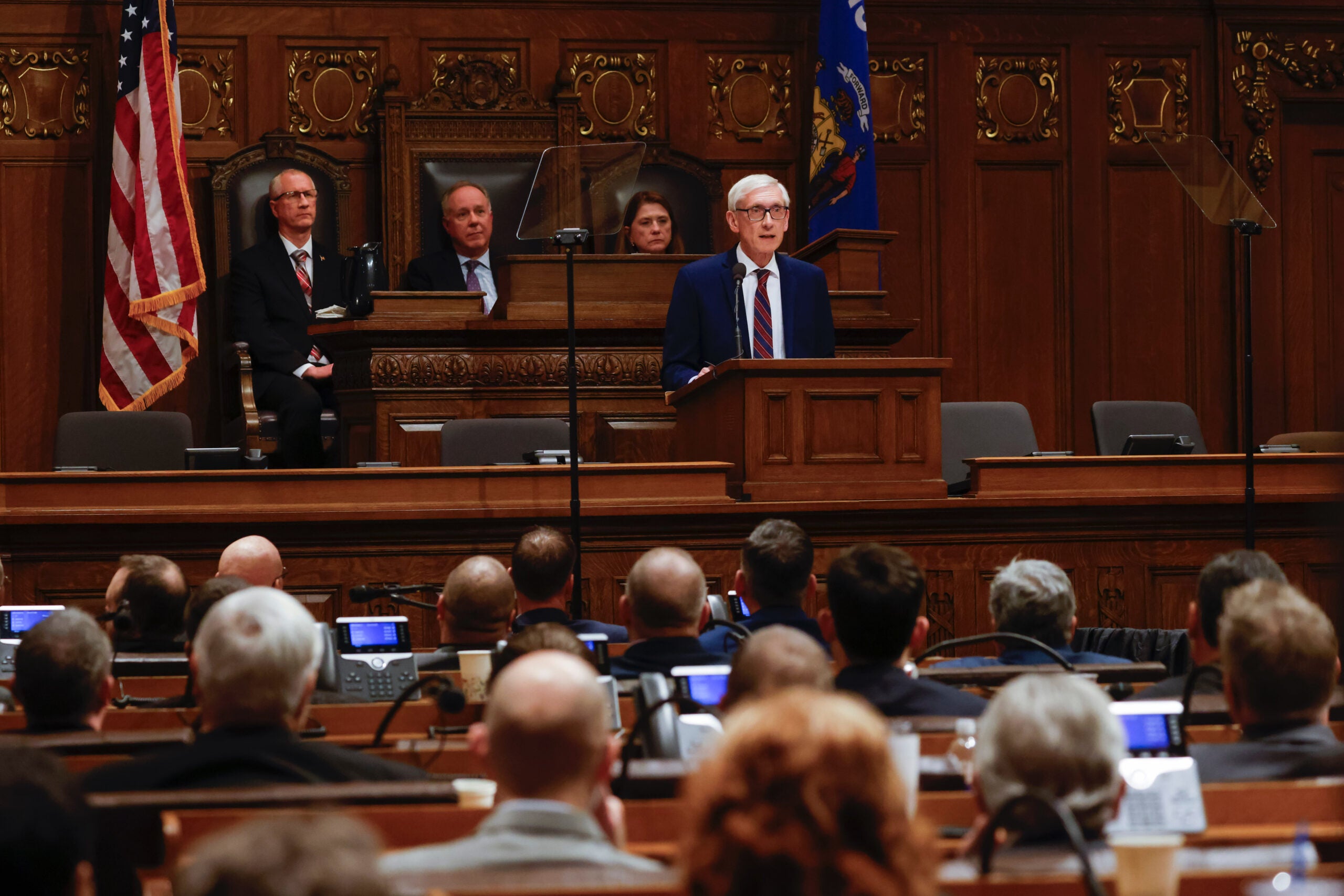Most Wisconsin families with kids could see temporary monthly payments as early as Thursday, under the Child Tax Credit program signed into law under the American Rescue Plan.
The program provides payments of $300 per child up to age 6, and $250 per child ages 6 to 17, to married couples making $150,000 or less and to single parents making $112,500 or less.
“It’s transformative,” said Tim Smeeding, a professor of economics and public affairs at the University of Wisconsin-Madison. “It’s a recognition that kids are expensive, and that we as a society have an obligation and an interest in having them grow up well, and do well.”
Stay informed on the latest news
Sign up for WPR’s email newsletter.
Smeeding noted that it’s particularly remarkable for including families who aren’t typically reached by the Earned Income Tax Credit, like the children of immigrant parents and “grandfamilies” — families where kids live with grandparents at least half of the year, and for whom grandparents provide at least half of the support. Unlike the Earned Income Tax Credit, which families receive as a credit when they file taxes each year, families can be eligible for the child tax credit even if they don’t make enough to file taxes.
The broad scope of the child tax credit is what concerns Angela Rachidi, a visiting fellow at the Badger Institute. She said research shows getting more money particularly into low-income households is good for kids, and that the money is likely to be spent within Wisconsin — but that some payments could add to concerns about the labor force, which is already under pressure.
“In the past, only working households were eligible for the child tax credit, this expands it to non-working households,” said Rachidi. “To the extent that this payment might make it easier for families not to reenter the labor market or reduce their hours, that could actually provide some more friction to the labor market and actually slow the recovery.”
Unlike other programs geared at low-income families, like FoodShare or federal housing assistance, the child tax credit funds are unrestricted — they can be used to cover whatever costs families most need. Rachidi noted that, with earlier stimulus payments, higher-income families tended to put the funds in their savings or pay down debt, while lower-income families were more likely to spend them on more immediate needs. Those can span everything from child care to catching up on utility payments to covering a security deposit, said Tamarine Cornelius, a research analyst at the nonprofit Kids Forward.
“It puts the power into the hands of families to determine how best to spend that money,” Cornelius said. “They know what they need.”
Smeeding noted that a quarter of evictions nationwide are filed against people who owe less than $500 in rent, meaning the tax credit may cover the difference that allows families to stay in their homes.
It also doesn’t count toward families’ income that determines eligibility for programs like FoodShare and Medicaid. Families do not have to recertify their eligibility each month.
Cornelius, from Kids Forward, said the payments will support 1.2 million kids in the state, and will lift 46,000 kids out of poverty — enough to fill every seat at a Brewers game at American Family Field and then some — but only through the end of the year.
“This credit is going to cut child poverty in half, but only temporarily,” she said. “The next obvious step is to make this permanent. Raising kids is hard work, and it’s important, and that is an investment our society should make on an ongoing basis, not just through the end of the year.”
Smeeding said continuing the payments would be on par with the passage of the Social Security Act in 1935 in its possibility to transform families’ lives.
“This is going to help parents do things, plan ahead, never have a month when they have no money,” said Smeeding.
Rachidi, at the Badger Institute, said there are better ways to reduce child poverty, like expanding the Earned Income Tax Credit, which is tied to work. She’s also concerned about the bureaucratic side of the payments. She noted that the IRS hasn’t had to manage such a massive monthly payout before, so there’s substantial room for error — the Earned Income Tax Credit has a high rate of erroneous payments — and that it’s possible payments will incorrectly go to families who no longer have custody of their kids. There’s also the possibility of changing addresses, or other logistical complications that could make it harder to get payments to families who qualify.
“There’s some of those concerns I have, about how it’s going to be administered, and if the IRS is actually capable of administering this on a monthly basis, at the scale they’re talking about, without a lot of errors,” she said.
Eligible families who have filed taxes in the past two years or who received stimulus checks will begin getting the payments via a mailed check or direct deposit Thursday. Others — including families where the children have a Social Security number but parents only have an Individual Taxpayer Identification Number — can register at ChildTaxCredit.gov.
Wisconsin Public Radio, © Copyright 2025, Board of Regents of the University of Wisconsin System and Wisconsin Educational Communications Board.





